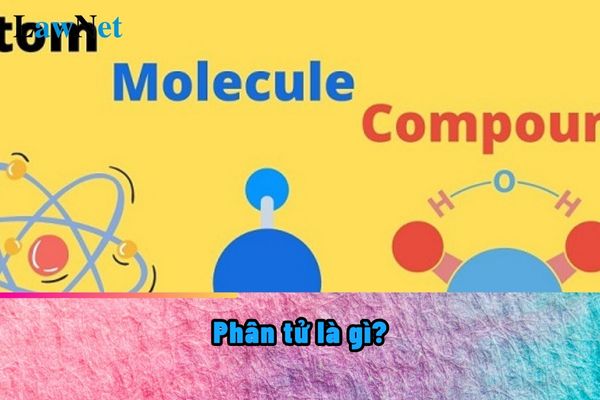What is a molecule? When do students in Vietnam learn about molecular according Chemistry curriculum?
What is a molecule?
A molecule is one of the contents that students will learn in the Chemistry curriculum in Vietnam.
|
What is a Molecule in Chemistry? A molecule is a particle representative of a substance, consisting of a number of atoms bonded together and fully exhibiting the chemical properties of that substance. In other words, a molecule is the smallest unit of a chemical substance that still retains the characteristic chemical properties of that substance. |
*Note: Information is for reference only./.

What is a molecule? When do students in Vietnam learn about molecular according Chemistry curriculum? (Image from the Internet)
When do students in Vietnam learn about molecular according Chemistry curriculum?
Based on Section 5 of the General Education Program for Natural Science issued in conjunction with Circular 32/2018/TT-BGDDT, the overview content includes content taught at grade 7 as follows:
- Atoms
- Chemical elements
- Brief introduction to the periodic table of chemical elements
- Molecules; elements; compounds
- Brief introduction to chemical bonds
- Valency; chemical formulas
Thus, according to the above regulation, students will be introduced to and learn about molecules in the grade 7 Natural Science program.
What is the general orientation of the teaching method for the subject of Natural Sciences according to the 2018 program in Vietnam?
Based on Sub-section 1, Section 6 of the General Education Program for Chemistry issued in conjunction with Circular 32/2018/TT-BGDDT, the general orientation for teaching methods of Natural Science according to the 2018 curriculum is as follows:
(1) Promote the positivity, initiative, and creativity of students; avoid unilateral imposition, rote memorization; focus on nurturing the ability for self-study and self-learning so that students can continue to learn, expand their knowledge, and continue to develop their qualities and abilities after graduating from high school.
(2) Cultivate skills to apply chemical knowledge to identify and solve practical problems; encourage and facilitate students to experience and be creative by organizing them to participate in learning, exploration, and application activities.
(3) Flexibly and creatively apply educational methods suitable to objectives, educational content, student subjects, and specific conditions.
Depending on the requirements to be achieved, teachers can combine multiple teaching methods in one topic.
Traditional teaching methods (lectures, dialogues,...) are used oriented towards promoting the positivity and initiative of students.
Enhance the use of teaching methods that emphasize the student's role as the learning subject (practical teaching, problem-based teaching, project-based teaching, experiential learning, and discovery; differentiated teaching,... with appropriate teaching techniques).
(4) A variety of and flexible implementation of teaching forms; combining individual, group, classroom learning, project-based learning, and self-study...
Promote the application of information and communication technology in chemistry teaching.
Emphasize external resources to textbooks and the equipped system of teaching devices; thoroughly exploit the advantages of information and communication technology in teaching on multi-media knowledge bases, increase the use of electronic resources (such as experiment films, virtual experiments, simulated experiments,...).

